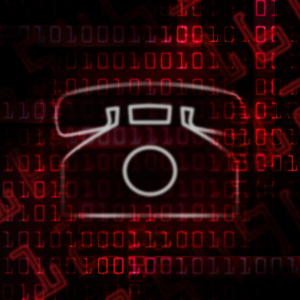 Managing business operations in today’s virtual environment is an ongoing challenge. As more and more customers rely on the global access created through internet options, Voice over Internet Protocol (VoIP) has become a standard technology for many companies due to its incredible features and cost-effective benefits. But the emergence of new technologies also often means an increase in new ways of criminal hacking. Though hackers cannot be prevented 100 percent of the time, companies can certainly neutralize the threat to a great extent.
Managing business operations in today’s virtual environment is an ongoing challenge. As more and more customers rely on the global access created through internet options, Voice over Internet Protocol (VoIP) has become a standard technology for many companies due to its incredible features and cost-effective benefits. But the emergence of new technologies also often means an increase in new ways of criminal hacking. Though hackers cannot be prevented 100 percent of the time, companies can certainly neutralize the threat to a great extent.
As so much sensitive information is transposed through Dual-tone Multi-frequency (DTMF) tones, a security breach over a VoIP system can spell disaster in more ways than one.
In fact, almost any business that performs operations through Time-division Multiplexing (TDM) and Internet Protocol (IP)-based voice frameworks through VoIP are susceptible to phone hackers (sometimes referred to as toll fraud). Not only are payments and financial information at risk, but confidential data collected from healthcare providers, engineering companies, and corporate structuring plans (like downsizing or mergers) are also in danger from phone hackers.
Why?
Simple. There is just no substitute for the cost-effective benefits of VoIP. And the eruption of VoIP usage has shown up on hacker radar because previously IP-based communication was centralized on local networks, which were typically protected from the public internet. However, that’s ancient history as more and more of VoIP traffic is routed through un-encrypted, public internet services by telephony providers.
It is hardly surprising, therefore, that there are many tools available now which make it simple, easy, and untraceable for hackers to infiltrate confidential phone conversations. Practically anyone with a little bit of tech savvy and basic research can start collecting and storing voice information from external IP networks overnight.
The Best Offense Is a Great Defense
Because of these increased risks, companies must rethink their supplier’s encryption protocols and safety measures. What may have been adequate when the VoIP was incorporated is most likely now out of date.
Here are the top five things to consider when questioning a VoIP supplier about the systems they have in place to combat phone-based cyber-crimes:
- Ask providers about their Session Initiation Protocol (SIP) trunking services. The system should feature automatic deactivation of any components that aren’t secure, as well as encryption capability for all calls.
- Companies that routinely record calls (a necessary quality control procedure for many businesses) must ensure that their telephony system conforms to ISO protection requirements outlined for storing sensitive information.
- For any payments conducted over the phone, companies must adhere to the Payment Card Industry Data Security Standards (PCI DSS). Also, it is vital that the VoIP provider allocates encrypted connections for payment data.
- Find out about Transport Layer Security (TLS) protocols. Protecting client/server applications from tampering or spying between transports is crucial for secure communications.
- Depending on the risk of remote access susceptibility, consider a Distributed Denial of Service (DDOS). This creates a direct access circuit that is only available for designated voice traffic.
The incredible cost benefits of VoIP through external IP networks are great. But knowing the heightened risk of phone hacking through open (or public) network VoIP can help companies prevent devastating breaches in data security by neutralizing the threat of confidential information from being intercepted.
